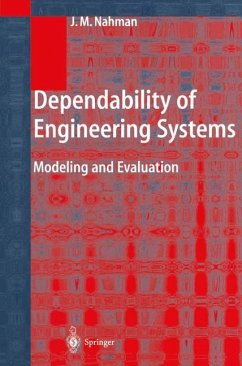
Dependability Modelling under Uncertainty
An Imprecise Probabilistic Approach

PAYBACK Punkte
38 °P sammeln!
Mechatronic design processes have become shorter and more parallelized, induced by growing time-to-market pressure. Methods that enable quantitative analysis in early design stages are required, should dependability analyses aim to influence the design. Due to the limited amount of data in this phase, the level of uncertainty is high and explicit modeling of these uncertainties becomes necessary.This work introduces new uncertainty-preserving dependability methods for early design stages. These include the propagation of uncertainty through dependability models, the activation of data from sim...
Mechatronic design processes have become shorter and more parallelized, induced by growing time-to-market pressure. Methods that enable quantitative analysis in early design stages are required, should dependability analyses aim to influence the design. Due to the limited amount of data in this phase, the level of uncertainty is high and explicit modeling of these uncertainties becomes necessary.
This work introduces new uncertainty-preserving dependability methods for early design stages. These include the propagation of uncertainty through dependability models, the activation of data from similar components for analyses and the integration of uncertain dependability predictions into an optimization framework. It is shown that Dempster-Shafer theory can be an alternative to probability theory in early design stage dependability predictions. Expert estimates can be represented, input uncertainty is propagated through the system and prediction uncertainty can be measured and interpreted. The resulting coherent methodology can be applied to represent the uncertainty in dependability models.
This work introduces new uncertainty-preserving dependability methods for early design stages. These include the propagation of uncertainty through dependability models, the activation of data from similar components for analyses and the integration of uncertain dependability predictions into an optimization framework. It is shown that Dempster-Shafer theory can be an alternative to probability theory in early design stage dependability predictions. Expert estimates can be represented, input uncertainty is propagated through the system and prediction uncertainty can be measured and interpreted. The resulting coherent methodology can be applied to represent the uncertainty in dependability models.














